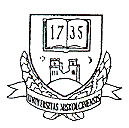The Function of the English Language in the European Union
The Function of the English Language in the European Union
Author(s): Sarolta Simigné FenyőSubject(s): Language and Literature Studies
Published by: Miskolci Egyetem
Keywords: the new function and the linguistic properties of the English language; new lingua franca; the new sociolinguistic situation created by the European Community; Euro-English; EU English
Summary/Abstract: The objective of the present study is to describe the new function and the linguistic properties of the English language in the European Community. After describing the need for a new lingua franca and the situationof the English language in the past the author presents the model of world Englishes as introduced by B. Kachru in 1985 and as applied by another researcher, Berns in 1995 to the new sociolinguistic situation created by the European Community. These two models serve as a theoretical framework for the author’s further investigation in connection with the emerging new variety called Euro-English, which will differ from Standard English both in vocabulary and structure. It is supposed that English will perform multiple roles for various citizens of the community. It will function as a mother tongue, a foreign language and an international language. The final conclusion is that the linguistic situation concerning the function of English in the EU countries is so complex that it is impossible to accommodate it in the framework of the model. English is likely to become the primary language of the EU citizens in the future. Both its grammar and its vocabulary will undergo changes. As a result, EU English will bear certain characteristics of other European languages.
Journal: European Integration Studies
- Issue Year: II/2003
- Issue No: 2
- Page Range: 53-64
- Page Count: 12
- Language: English

